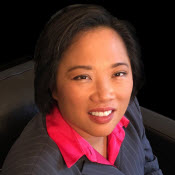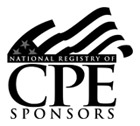
View Details/Register
View Details/Register
View Details/Register
View Details/Register
View Details/Register
View Details/Register
View Details/Register
View Details/Register
View Details/Register
View Details/Register
View Details/Register
View Details/Register
View Details/Register
View Details/Register
View Details/Register
View Details/Register
View Details/Register
View Details/Register



This Ethics webinar does NOT qualify for IRS CE credit.
CPA - medium firm
CPA - large firm
A CPA is challenged in today’s work world to not only serve his/her client or employer but also to protect the public interest by ensuring that there is transparency in financial reporting or there is fair administration of the tax laws. In balancing the two interests, a CPA may find him or herself in an ethical dilemma. This course covers not only basic ethical frameworks, but also specific rules from the AICPA Code of Professional Conduct, the New York Rules, Regulations and Education Law. These sources govern the practice and responsibilities of New York CPAs. It concludes with a section on how a CPA can put his or her ethics into action.
Learning Objectives:
- To assimilate the rules of ethics for CPAs and professional accountants licensed in New York.
- To ascertain intent of the AICPA Code of Professional Conduct and the New York Rules, Regulations and Education Law in the performance of professional accounting services/work, not to adhere to the mere technical compliance of such rules.
- To apply ethical judgment in interpreting the rules and determining public interest. Public interest should be placed ahead of self-interest, even if it means a loss of job or client.
- To analyze and apply the New York law that pertain to CPAs licensed to practice in the state of New York. Students will become familiar with the New York Revised Statutes, the Rules of the State Board of Accountancy, and the Policies adopted by the Board currently in effect and how the statutes, rules, and policies pertain to them. Specific rules reviewed include the following:
- The role of the Office of the Professions
- New York State rules on ethics (as provided in NYS Law, Rules and Regulations), including the following:
- Retention and maintenance of work papers
- Competency requirements for attest and compilation services
- Failing to maintain an active registration when using the title of designation
- Reportable events
- Commissions and referral fees, including mandatory disclosure
- Public expectations of CPAs’ responsibilities
- Enforcement of rules on ethics
|
Self-Study Course Instructions: FOR DOCUMENT-BASED COURSES Download the course document(s) (below) and follow prompts contained in the document. FOR RECORDED COURSES WITH VIDEO Download any course document(s) (below) which may include handouts, glossary, transcripts, etc. Follow any prompts contained in the documents to help you complete the course. Most documents are searchable. |
- CPAacademy self-study courses are online.
- The self-study format allows you to a) access the material online 24/7 and b) study at your own pace.
- Per NASBA guidelines, you have one year from date of purchase to complete each program.
- Complete your final exam at any time and get graded instantly. You can retake the exam at no additional charge (unlimited attempts).
- Print your own certificate of completion on the spot upon passing the exam.
- Grading policies: a) courses have a minimum passing score 70% b) test takers will not be provided feedback on failed exams.
- Upon achieving a passing score, test takers will be notified of the correct answers to the questions missed.

Allison McLeod
Allison McLeod - Accounting Malpractice
Speaker & Author
a_m_mcleod@yahoo.com
(214) 403-8622
Professor Allsion McLeod is currently a full-time Senior Lecturer at the University of North Texas, and has taught classes in Corporate Income Taxes, Multi-jurisdictional Taxation, Individual Taxes, Tax Research, Ethics and Financial Accounting. Prior to going into academia, she worked for 18 years in industry and in a Big Four accounting firm. Professor McLeod earned a law degree from Baylor School of Law, and an LL.M. degree in Taxation from Southern Methodist School of Law. She has been a licensed CPA since 1993 and has been licensed to practice law since 1992.


NASBA Approved
CPAacademy.org (Sponsor Id#: 111889) is registered with the National Association of State Boards of Accountancy (NASBA) as a sponsor of continuing professional education on the National Registry of CPE Sponsors. State boards of accountancy have final authority on the acceptance of individual courses for CPE credit. Complaints regarding registered sponsors may be submitted to the National Registry of CPE Sponsors through its website: www.nasbaregistry.org.
CPAacademy.org 1685 S. Colorado Blvd, Suite #205, Denver, CO 80222
Allison M. (Yee) McLeod, LL.M., JD, CPA, has served as an expert witness in multi-million dollar cases involving tax litigation and accounting malpractice.
Professor McLeod is also a full-time Senior Lecturer at the University of North Texas in Denton, Texas. Her courses include Ethics, Corporate Taxation, Tax Research and Financial Accounting.






